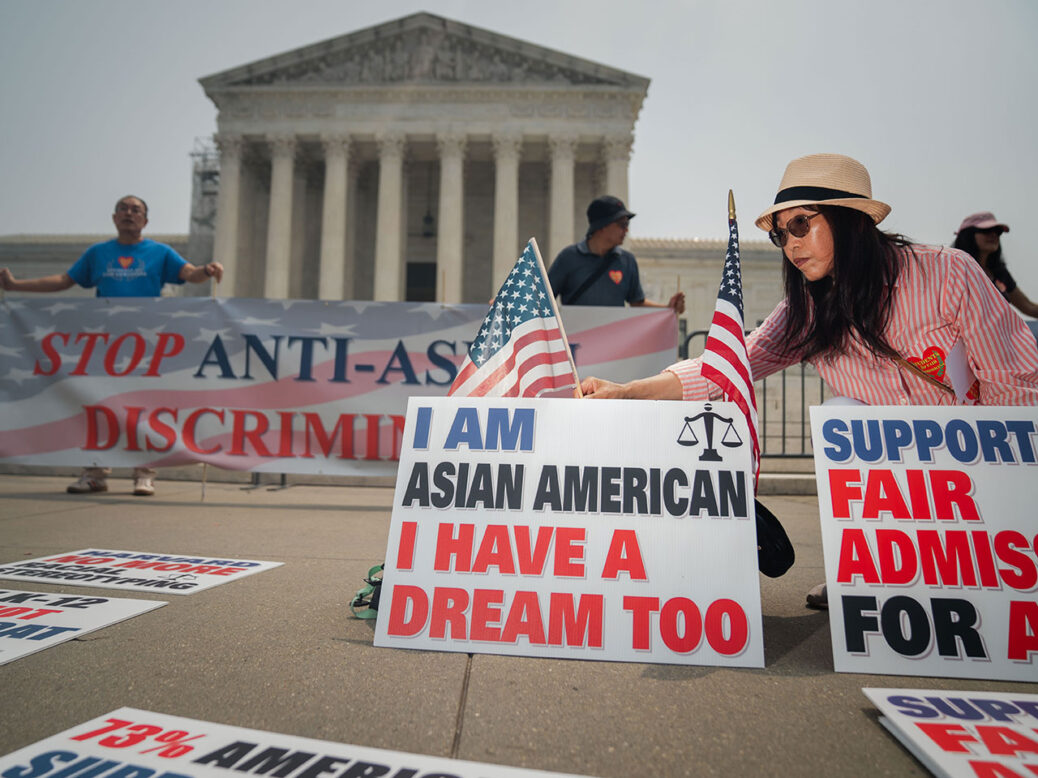
Growing up as an ethnically Chinese teenager in Canada, I knew, as did all my peers who were similarly afflicted by that incurable condition, that being Asian would count against you when you applied to certain university programmes, and that you had to do better than your non-Asian classmates to stand an equal chance of being admitted.
As I recall, most of us simply accepted this as the natural order of things, and chose one of two strategies to overcome the hereditary handicap. Some doubled down and studied harder. Others opted to consciously behave in ways that were “less Asian”. Playing classical instruments was racially suspect; becoming involved in local politics, on the other hand, helped demonstrate qualities of leadership, which the conformist Asians are said to lack.
Luckily, most Canadian universities only react negatively in a handful of stereotyped subjects, such as medicine and dentistry. I still remember the withering look one of my alma mater’s admissions officers gave me when I showed up to one of their medicine open days. Not another one, her face, wearied by hundreds of indistinguishable Wongs and Kims, seemed to shout. She mumbled something about picking up an information pack, and I left as soon as I decently could. Perhaps it didn’t matter. I would have made a terrible doctor and would have hated dentistry even more. But I hope my genes didn’t have anything to do with it.
Still, at least I did not grow up in America. Last week the Supreme Court largely outlawed discrimination based on race in university admissions, to the universal dismay of progressive opinion. The case mainly turned on a challenge against Harvard’s admissions process – and by extension, that of almost every single selective American university – which the plaintiffs alleged systematically discriminated against Asian American applicants.
The case’s evidence was not particularly hard to understand. If you were an Asian applicant to Harvard, you needed to have better scores than non-Asian applicants to be admitted, and even then your odds of admission were lower than if you were of any other race. Asian applicants were, the plaintiffs said, systematically ranked lower on “positive personality traits”, such as likability, courage and kindness, by admissions officers who had never met the applicants. The proportion of Asians in the American population has gone up dramatically; the number of Asians at Harvard flatlined year after year.
[See also: Why affirmative action in university admissions failed]
These were the allegations brought in the suit. But they were also baldly stated in an internal report commissioned by Harvard in 2013 to defend itself from charges of racism. It was duly suppressed by the university’s administration.
And, frankly, there was nothing that every Asian American teenager and parent, every admissions counsellor, every single person involved in the ugly process through which the US’s elite universities select the next generation of their country’s ruling class, did not know already.
In fairness to Harvard, I should mention that it commissioned a Nobel Prize-winning economist to write a report showing that Harvard did not engage in racial discrimination. According to David Card’s analysis, once you controlled for the low personality scores of Asian American applicants, the disparity in admission rates vanishes. There is no discrimination once you take into account personality scores, but personality scores are the main vehicle for discrimination. And what explains the systematically lower personality scores? Card coyly suggests that perhaps Asian applicants write inferior admission essays, a requirement that was after all first introduced by Harvard a century ago to weed out Jewish applicants who lacked the requisite “character” to attend the university.
All of this is quite embarrassing to American progressives. They are unwilling to defend the simple fact that Asian Americans, many of them relative newcomers to the republic of the United States, behaved in ways that did not map well on to the uneasy American racial settlement: they did too well for a minority group, relative to their demographic weight. And for this, they have been kept to manageable proportions through unwritten numerus clausus, or limits to the number of students allowed to study.
Because these realisations are simultaneously trite but also unspeakable in polite company, the word “Asian” was barely uttered in the aftermath of the Supreme Court decision, except by opponents of affirmative action. The dissenting opinion by Justice Ketanji Brown Jackson used the word “Asian” precisely three times, as if it was a common vulgarity instead of an ethnic group systematically discriminated against by the country’s finest universities, including her own alma mater.
The dissent by Justice Sonia Sotomayor suggested that worried Asian applicants should simply write better essays in which they explain that they are not like those other Asians, the Singhs and the Woos, with their undistinguishable faces and their glaring lack of “positive personality traits”. She put it more eloquently, but not much more so.
After the Supreme Court’s decision was released, Harvard did not apologise for having engaged in decades of race-based discrimination, but instead implied that it would try to carry on as usual: “The Court also ruled that colleges and universities may consider in admissions decisions ‘an applicant’s discussion of how race affected his or her life, be it through discrimination, inspiration, or otherwise’. We will certainly comply with the Court’s decision.” The New York Times’s withering editorial did not use the word “Asian” once. Few of the dozens of elite universities, human rights charities and progressive politicians who rushed to condemn the decision did.
For that matter none of my American academic fellow-travellers, who rushed to condemn the decision as racist and right wing, and who will next September teach at least some students who look like me, did so either.
[See also: Labour forgets that not everyone goes to university]





